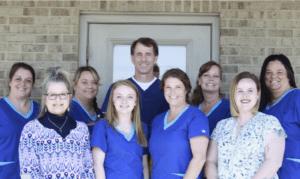The human body is an amazing thing, and despite all the cricks and creaks of older joints, our elderly friends and family will tell you what an experience it is to watch the world and their place in it change over the years. And just as it’s important to value our seniors, and for them to value themselves, it’s important that health professionals, including dentists and oral surgeons, value our geriatric population and their unique dental needs.
There’s a reason doctors and dentists practice in pediatric, general or geriatric medicine – we need different things at different times of life. After all, what does a 6-year-old’s mouth full of milk teeth have anything to do with an 87-year-old’s aging dental implants?
Basically nothing.
So, what are some of the features of geriatric dental care and oral surgery that require specialized attention and knowledge from an oral health professional? Let’s discuss:
Challenges in Oral Health Unique to the Geriatric Population
- Dentition Retention: As we age into our Golden Years, we lose bone density at an increasing rate, and this includes our teeth and jaws. Therefore, dental professionals specializing in elderly care focus on retention rather than the standard prevention-focused care for younger patients.
- Mouth Reconstruction: In older populations, we’re likely speaking about mouth restoration when we’re discussing geriatric oral surgeries. Age, lifestyle and health can all affect the condition of the teeth and jawbones. A holistic mouth reconstruction that includes comprehensive methods of replacing teeth becomes integral to preserving the condition of the mouth, and even restoring previous damage and decay.
- Bone Support: That deterioration of bone density present in elderly patients means more dental bone grafting is necessary in geriatric oral surgery, especially during dental implant surgery. This then poses its own complications with regard to sedation for oral surgery. However, the senior population stands to benefit the most from bone grafting and dental implant surgery, as this method of replacing teeth is natural, minimally-invasive, and truly restores the look and function of the lost teeth and damaged jaw.
- Quality of Life: Preserving the mouth of a geriatric patient isn’t just about aesthetics and bone loss; it’s about their day to day life – how easy or difficult is it for them to perform daily functions like chewing, swallowing, speaking, etc.? A patient who is unable to eat nutritious foods because they’re too hard to chew can’t stay healthy, and this will only increase the rate of decay in the mouth.
- Overall Health: Heart conditions, chronic illnesses and medications can all affect the condition of the teeth and jaw, as well as what kinds of anesthesia are safe in a given geriatric oral surgery.
- Points of View: It may sound macabre, but we often see older patients who view the cost of geriatric oral surgery as diminishing returns, because of longevity. For instance, an 80-year-old patient might think the cost of dental implant surgery isn’t worth it – why would they need a tooth replacement option that lasts 20 to 30 years?
Oral surgeons specializing in the geriatric population understand these factors in oral healthcare for the elderly. It’s a different time of life, and just because it’s closer to the horizon doesn’t mean elderly dental care isn’t something we should sleep on. The longer we can keep our senior citizen’s mouths healthy, the longer and happier lives they’ll have, and the longer we’ll have to listen to their stories and learn from their experiences.









